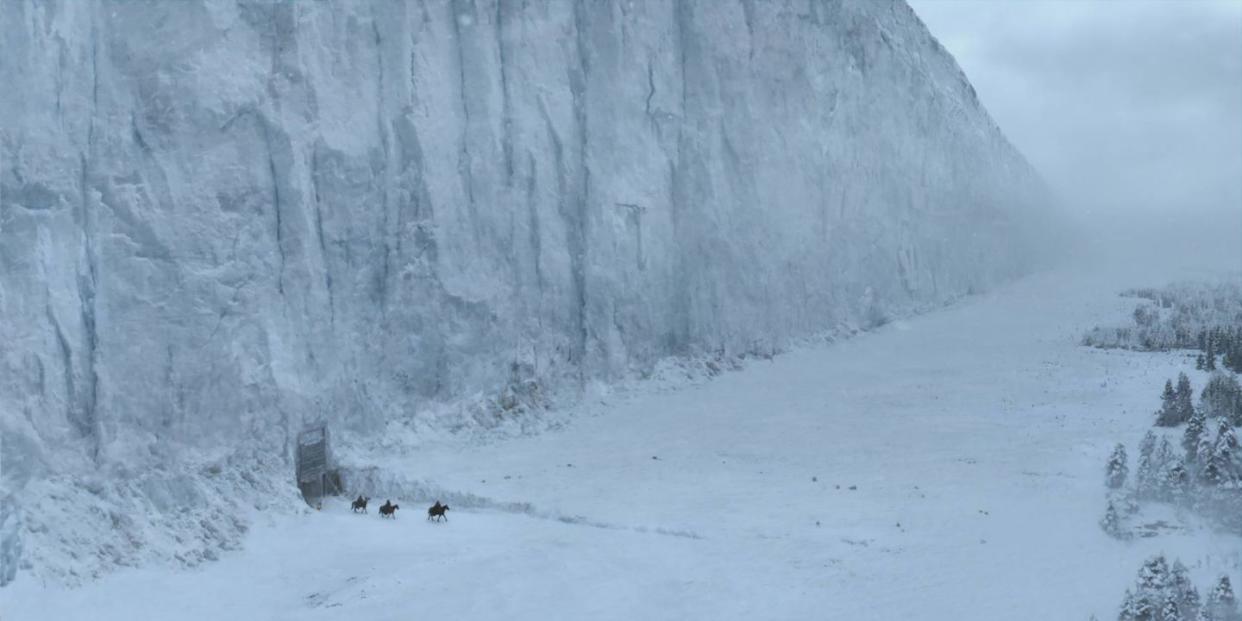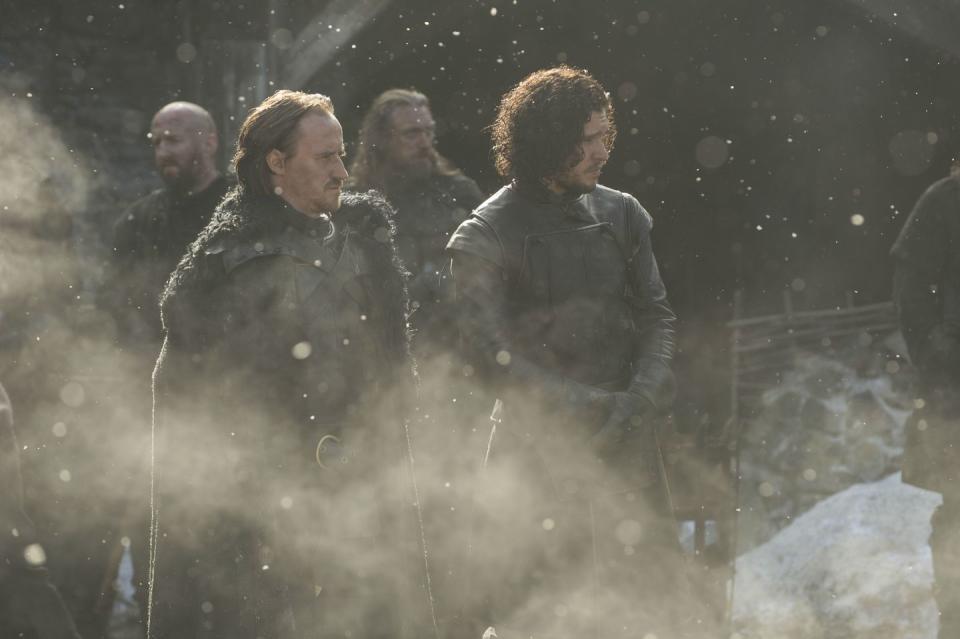Why is there still a Night's Watch on Game of Thrones?

Note: contains spoilers for Game of Thrones' season final, 'The Iron Throne'.
There are plenty of questions left hanging following the (inevitably) divisive final episode of Game of Thrones. (Why doesn't Drogon kill Jon? Who were those old guys on the Great Council? And most importantly, why does Sansa get to keep a hereditary monarchy going when everyone has literally just agreed that that's a Bad Thing? Why doesn't Yara say "Oh yeah? Well I'm having some of that action too. It s 'Queen Yara' to you, peasants.")
But we'll leave all that for now. We're more interested in Jon's fate.
In order to keep Grey Worm and the Unsullied happy, King Bran needed to punish Jon for killing Dany. In order to keep Sansa happy, Bran couldn't put Jon to death. So his compromise was the traditional Westerosi judicial response just short of the death penalty: to send Jon back to the Wall, to live in exile and service to the realm for the rest of his life.
(We'll just assume that Grey Worm didn't realise that Jon actually likes it up there.)
There's just one problem: with the Night King defeated and his army of undead re-deaded, what, exactly would be the point of the Night's Watch, or indeed the Wall?

To answer that, we need to go back in time.
According to the legends, The Wall, 300 miles wide and 700 feet high, was built by Bran the Builder (an early Stark) 8,000 years before the events of Game of Thrones as protection against the White Walkers, who had descended from the far north during the original Long Night, a generation-long winter where 'Kings froze to death in their castles'.
Other myths in the east say that "the Great Other" was destroyed by the hero Azor Ahai, but one way or another, the White Walkers stopped being a threat. Over millennia, they passed into story and people stopped believing in them. The only real threats beyond the Wall, they believed, were the Wildlings (aka the Free Folk), who refused the dominion of the southern lands and occasionally snuck through or over the Wall on raids.
Our point is: the Wall was built – and the Night's Watch created – after the Long Night. When the White Walkers were defeated the first time.
Ol' Blue Eyes still came back, though, didn't he?
So even though the Night's Watch appears to have no purpose now, that's not to say there won't be a need for it again. The White Walkers don't go away for ever. Winter comes back.
Then there's this little fella:

Remember him? He was the last of Craster's incestuously-born sons. Back in season four we saw the renegade Night's Watch soldier Rast take the baby and leave him in the forest for the White Walkers, who took him away and turned him into one of them.
It's possible that White Walker babies grow up super fast and turn into wrinkly old long-haired White Walker captains in the space of a few months. It's also possible he was left behind to grow up at normal pace, and exploded along with the rest of them when Arya stabbed the Big Fella. Or might he still be around… waiting?
Probably not. More likely DB Weiss and David Benioff just forgot to tie up that loose end along with all the other ones. (Amazingly, they turned out not to be as diligently nitpicky as several hundred million fans on the internet.)
Even leaving the White Walkers aside, the Night's Watch serves another, more pragmatic purpose: it's a place for unwanted men.

"There's still a Night's Watch?" Jon asks in the final episode, on learning what's to become of him.
"The world will always need a place for bastards and broken men," says Tyrion.
So of course there's still a Night's Watch – where else would you send disgraced noblemen, awkward bastard sons and recidivist criminals?
Besides, the Free Folk are hardly going to submit to the dominion of Queen Sansa or King Bran. They'll still be a political, if not military, problem for the Six Kingdoms and the North. You can't have a Customs Union and free passage of goods and people without bending the knee to some extent, as should be fairly well established by now. That means a Hard Border at the Wall, and no one in King's Landing mentioned a backstop.
Of course all this ignores the fact that Jon isn't rejoining the Night's Watch at all – as the final scene makes clear, he's actually going beyond the wall to live with the Free Folk, so it's all moot anyway. *Sigh*.
We earn a commission for products purchased through some links in this article.
('You Might Also Like',)

